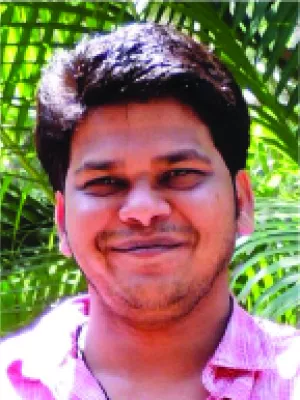Biography
Ashwin received his Ph.D. in Biotechnology from the National Centre for Cell Science (Savitribai Phule Pune University), Pune, India. In 2019, he joined the Nijagal lab as a postdoctoral research scholar, where he is currently investigating the role of tissue resident macrophages in fetal liver development.
When not at work, Ashwin enjoys playing music, watching movies, exploring new places and hiking.
Education
National Centre for Cell Sciences, S.P.P.U., Pune, India, Ph.D., Biotechnology (Infection and Immunity), 2018
Swami Ramanand Teerth Marathwada University, Nanded, India, M.S., Biotechnology, 2006
Book Chapters
Khandare, A. V., Bobade, D., Deval, M., Patil, T., Saha, B., & Prakash, D. (2017). Expression of negative immune regulatory molecules, pro-inflammatory chemokine and cytokines in immunopathology of ECM developing mice. Acta tropica, 172, 58-63. PMID:28454880.
Bobade, D., Khandare, A.V., Deval, M., Shastry, P. and Deshpande, P., 2018. Hemozoin‐induced activation of human monocytes toward M2‐like phenotype is partially reversed by antimalarial drugs—chloroquine and artemisinin. Microbiology Open, p.e00651. PMID: 29877619.
Antimalarial activity and immunomodulatory effect of Tinospora cordifolia (Guduchi plant extract) and Plumbago zeylanica plant-based nanoparticles (Au, Ag & Au-Ag), and Guduchi and Aloe-vera, National Conference, Vidyasagar University, Midanapur, West Bengal, India, March 2018
Role of negative immune regulatory molecules in murine cerebral malaria, Nationasl Academy of Science India, Pune, India, December 2017

